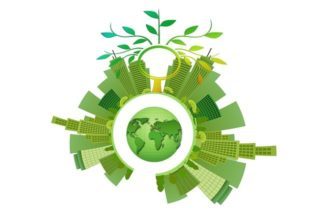
The US Yearly Manufacturing Report 2018 discovered that 92% of senior manufacturing executives recognize that digital applications, including Artificial Intelligence (AI), will lead to productivity improvement and will bring more capabilities to the personnel. On the other hand, Forrester Research claims that almost 60% of technology and business experts are looking for Artificial Intelligence solutions. Yet only 12% has AI applications in their daily business lives.
An estimation made by Accenture and Frontier Economics states that AI will increase productivity by 40% over 16 different sectors by 2035. These sectors include energy and manufacturing. AI technologies have the ability of self-learning, easily adapt, and can combine data for the optimum outcome. Additionally, traditional applications cannot automate different and complicated tasks to produce the desired results. The same study includes the following revenue estimation: AI technologies can generate additional gross revenue of $3.8 trillion by 2035 in the manufacturing industry. It’s important to highlight that this addition is a 45% increase compared to the current situation.
The fields that could be significantly improved by AI applications:
1. Increased accuracy in quality controls. Production lines could have digital cameras of high-sensitivity to gather and analyze significant data that the human eye isn’t able to detect. These data would give value outcomes to increase the effectiveness in business decision making.
2. To predict and abandon patterns of failure. AI can gather useful data on how products perform and help the industry improve when designing new ones. This kind of AI application helps in reducing failures, minimize risks, and increases efficiency.
3. To predict and minimize downtime and reduce costs. Researches indicate that malfunctions in the production line lead to 3% losses in working hours (research conducted in the United Kingdom). Malfunctions add to the cost of the industry the huge amount of €165 billion every business year.
4. Manufacturing models designed by AI are delivered much faster and in a more efficient way. AI technologies recognize alternative resources, practices, and significantly reduce costs.
How AI Affects The Utility & Energy Industry
Most of us know that the power grid is a network characterized by complexity. This power network should always work effectively so the populations have electricity to their premises. Power demand should always match the power supply. If not, populations should live with frequent situations of blackouts or failures of powering the daily activities.
AI applications can predict the power demand more effectively and every time. This would lead to the constant and effective delivery of power to the population.
Renewable energy has even more challenges for the energy industry since it relies on the power of wind and sunlight. Therefore, it is even more difficult to estimate the electricity supply. Renewable energy corporations firstly utilized the benefits from AI technologies, self-learning patterns, and the science of data to effectively predict and offer the proper volumes of power to their audience.







